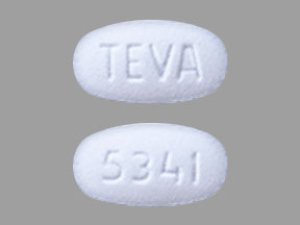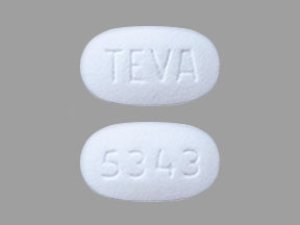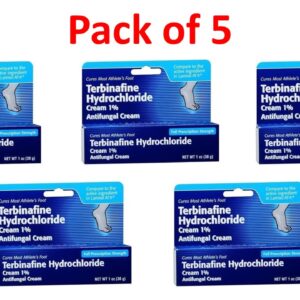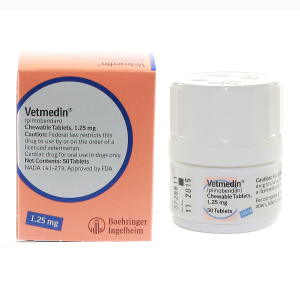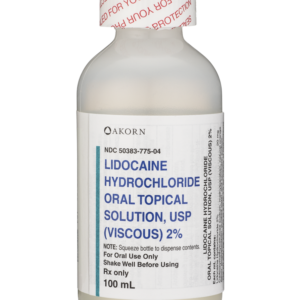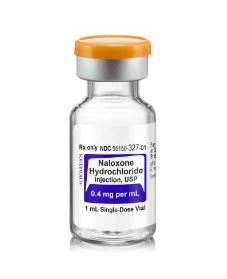Delivery Method: Via Mail Product: Drugs
Food & Beverages Recipient:
Recipient Name
Katrina Johnson
Blue Forest Farms, LLC
400 Madison Avenue
New York, NY 10017-1909
United States
info@blueforestfarms.com Issuing Office: Human Foods Program
United States
September 11, 2025
CMS #711990
Dear Ms. Johnson:
This is to advise you that the Food and Drug Administration (FDA) reviewed your website at the Internet address www.blueforestfarms.com in July 2025 and has determined that you take orders there for various human food products, which you represent as containing Amanita muscaria. FDA has determined that your products, Amanita Muscaria Microdose Capsules and Amanita Muscaria Magic Potion Tincture, are adulterated under section 402(f)(1)(B) of the Federal Food, Drug, and Cosmetic Act (the Act), 21 U.S.C. 342(f)(1)(B). Additionally, your Amanita Muscaria Magic Chocolate is adulterated under section 402(a)(2)(C)(i) (21 U.S.C. 342(a)(2)(C)(i)) of the Act. As explained further below, introducing or delivering these products for introduction into interstate commerce violates the Act. You can find the Act and FDA regulations through links on FDA’s home page at www.fda.gov.
Adulterated Dietary Supplements
The labeling of your Amanita Muscaria Microdose Capsules and Amanita Muscaria Magic Potion Tincture declares Amanita muscaria as a dietary ingredient. More specifically, the labeling on your Amanita Muscaria Microdose Capsules states that the Amanita muscaria is from whole dry fruiting bodies, and the labeling on your Amanita Muscaria Magic Potion Tincture states that the Amanita muscaria is an extract made from whole dry Amanita Muscaria fruiting bodies. Based on a review of your product labeling, the Amanita muscaria in your Amanita Muscaria Microdose Capsules, is a “dietary ingredient” as a botanical under section 201(ff)(1)(C) of the Act (21.U.S.C. 321(ff)(1)(C)), while the Amanita muscaria in your Amanita Muscaria Magic Potion Tincture is a “dietary ingredient” as an extract of a botanical under section 201(ff)(1)(F) of the Act (21 U.S.C. 321(ff)(1)(F)). Amanita muscaria, A. muscaria extract, ibotenic acid, muscarine, and muscimol are new dietary ingredients under section 413(d) of the Act (21 U.S.C. 350b(d)) because, to the best of FDA’s knowledge, there is no information demonstrating that Amanita muscaria was marketed as a dietary ingredient in the United States before October 15, 1994.
A dietary supplement is adulterated under section 402(f)(1)(B) of the Act (21 U.S.C. 342(f)(1)(B)) if it contains a new dietary ingredient for which there is inadequate information to provide reasonable assurance that such ingredient does not present a significant or unreasonable risk of illness or injury. Based on our evaluation of the relevant safety evidence, there is inadequate information to provide reasonable assurance that Amanita muscaria does not present a significant or unreasonable risk of illness or injury. Therefore, your dietary supplements containing Amanita muscaria are adulterated under section 402(f)(1)(B) of the Act. The introduction of such adulterated dietary supplements into interstate commerce is prohibited under section 301(a) of the Act. Moreover, available information on the use of Amanita muscaria in products raises serious safety concerns.
Adulterated Human Foods
Based on a review of your product labeling, your Amanita Muscaria Magic Chocolate is a conventional food to which Amanita muscaria has been added.
As defined in section 201(s) of the Act (21 U.S.C. 321(s)), the term “food additive” refers to any substance the intended use of which results in it becoming a component of any food, unless the substance is generally recognized as safe (GRAS) among qualified experts under the conditions of its intended use, or unless the substance meets a listed exception.1
Additionally, your Amanita Muscaria Magic Chocolate product is represented for use as a conventional food, and accordingly is not a dietary supplement as labeled, and as defined under Section 201(ff) of the Act (21 U.S.C. 321(ff)). The Act excludes from the definition of a dietary supplement a product represented for use as a conventional food or as a sole item of a meal or the diet (21 U.S.C. 321(ff)(2)(B)). Your use of “Dietary Supplement” as a statement of identity and a “Supplement Facts” panel for nutrition labeling does not make your product a dietary supplement because your Amanita Muscaria Magic Chocolate product is represented for use as a conventional food. Examples of factors and information that establish that the product is represented as a conventional food follow:
Chocolate Bar:
- The use of a combination of ingredients characteristic to a chocolate bar which are listed on the website (including chocolate, sugar, cocoa butter, soy lecithin, natural vanilla flavor, and milk); and
- The appearance and packaging of the product as a chocolate bar.
As sold, your Amanita Muscaria Magic Chocolate product is represented for use as a conventional food, for example, by the use of the word “Chocolate” in the statement of identity on the package label.
Food additives require premarket approval based on data demonstrating safety. Any food additive that has not been approved for its intended use in food is deemed to be unsafe under section 409(a) of the Act (21 U.S.C. 348(a)) and causes the food to be adulterated under section 402(a)(2)(C)(i) of the Act, 21 U.S.C. 342(a)(2)(C)(i). Introduction of an adulterated food into interstate commerce is prohibited under section 301(a) of the Act, 21 U.S.C. 331(a).
There is no food additive regulation that authorizes the use of Amanita muscaria. We are not aware of any information to indicate that Amanita muscaria is the subject of a prior sanction (see 21 CFR Part 181). Furthermore, we are not aware of any basis to conclude that Amanita muscaria is GRAS for use in conventional foods. FDA’s regulations in 21 CFR 170.30(a)-(c) describe the criteria for eligibility for classification of a food ingredient as GRAS. The use of a food substance may be GRAS based on either scientific procedures or, for a substance used in food before 1958, through experience based on common use in food (see 21 CFR 170.30).
We know of no basis for general recognition of safety for Amanita muscaria based either on scientific procedures or common use in food prior to January 1, 1958. Based on our review of published scientific literature, existing data and information do not provide an adequate basis to conclude that the use of Amanita muscaria in food meets the criteria for GRAS status. Some of the available data raise serious concerns about potential harm associated with Amanita muscaria. In our review, we identified published scientific literature, adverse event reports, and calls to poison control centers that reported serious adverse effects on the central nervous system associated with consumption of Amanita muscaria, including delirium, seizures, coma, respiratory depression, and potentially death. Therefore, based on our review, the use of Amanita muscaria in conventional food does not satisfy the criteria for GRAS status under 21 CFR 170.30.
FDA is not aware of any other exception to the food additive definition that would apply to Amanita muscaria for use as an ingredient in a conventional food. Therefore, Amanita muscaria when added to a conventional food is a food additive under section 201(s) of the Act and is subject to the provisions of section 409 of the Act. Under section 409, a food additive is deemed unsafe unless it is approved by FDA for its intended use prior to marketing. Amanita muscaria is not approved for use in any conventional food. Food containing an unsafe food additive within the meaning of section 409 is adulterated within the meaning of section 402(a)(2)(C)(i) of the Act. Therefore, your Amanita Muscaria Magic Chocolate, and other foods that contain Amanita muscaria, are adulterated within the meaning of section 402(a)(2)(C)(i) of the Act because they bear or contain an unsafe food additive. The introduction of these adulterated foods into interstate commerce is prohibited under section 301(a) of the Act, 21 U.S.C. 331(a).
This letter is not intended to be an all-inclusive statement of violations that may exist in connection with your products. You are responsible for investigating and determining the causes of any violations and for preventing their recurrence or the occurrence of other violations. It is your responsibility to ensure that your firm complies with all requirements of federal law, including FDA regulations.
This letter notifies you of our concerns and provides you an opportunity to address them. Failure to adequately address this matter may result in legal action including, without limitation, seizure and injunction.
Please notify FDA in writing, within 15 working days of receipt of this letter, of the specific steps you have taken to address any violations. Include an explanation of each step being taken to prevent the recurrence of violations, as well as copies of related documentation. If you cannot complete corrective actions within 15 working days, state the reason for the delay and the time within which you will do so. If you believe that your products are not in violation of the Act, include your reasoning and any supporting information for our consideration.
Your written reply should be directed to Kimberly Dutzek, Compliance Officer, United States Food and Drug Administration, Human Foods Program, Office of Enforcement, 5001 Campus Drive, College Park, Maryland 20740-3835 or via email at HFP-OCE-DietarySupplements@fda.hhs.gov. Please reference CMS #711990 on any submissions and within the subject line of any emails to us. If you have any questions, you may email at HFP-OCE-DietarySupplements@fda.hhs.gov.
Sincerely,
/S/
Maria S. Knirk, J.D., M.B.A.
Acting Director, Office of Enforcement
Office of Compliance and Enforcement
Human Foods Program
_____________________
1 Under section 201(s) of the Act (21 U.S.C. § 321(s)), the following types of substances are excluded from the food additive definition: (1) pesticide chemical residues in or on a raw agricultural commodity or processed food; (2) pesticide chemicals; (3) color additives; (4) substances used in accordance with a “prior sanction” (i.e., a sanction or approval granted prior to the enactment of the Food Additives Amendment of 1958 under the Act, the Poultry Products Inspection Act, or the Meat Inspection Act); (5) new animal drugs; and (6) dietary ingredients in or intended for use in a dietary supplement.

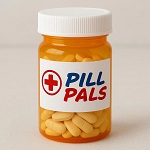 Our Pill Pass® Drug List is only $6.99 or less and Shipping is FREE!
Our Pill Pass® Drug List is only $6.99 or less and Shipping is FREE!

